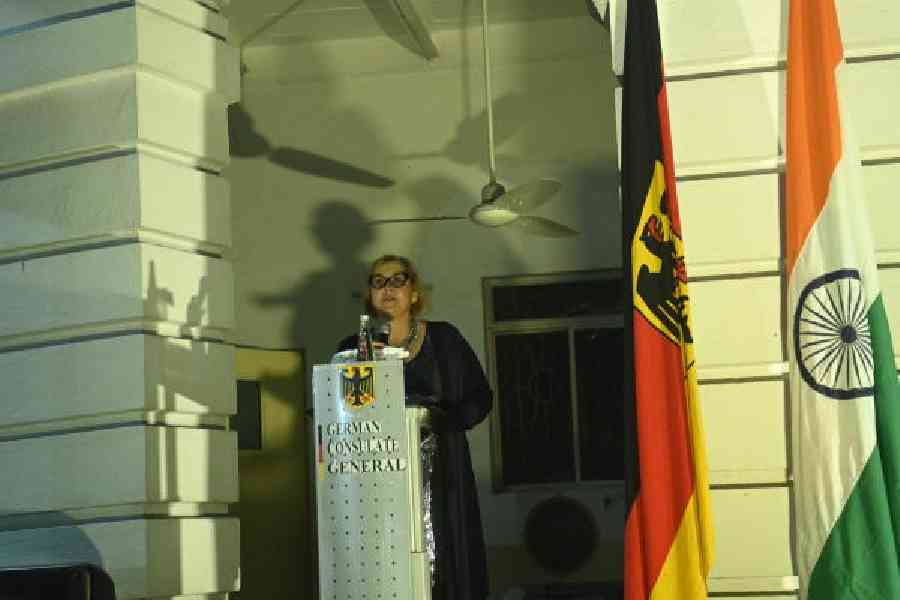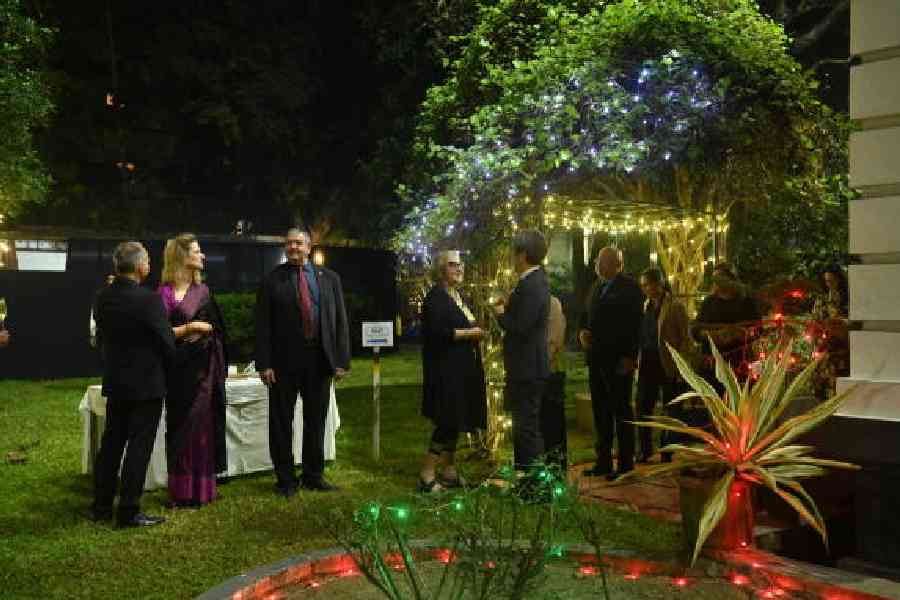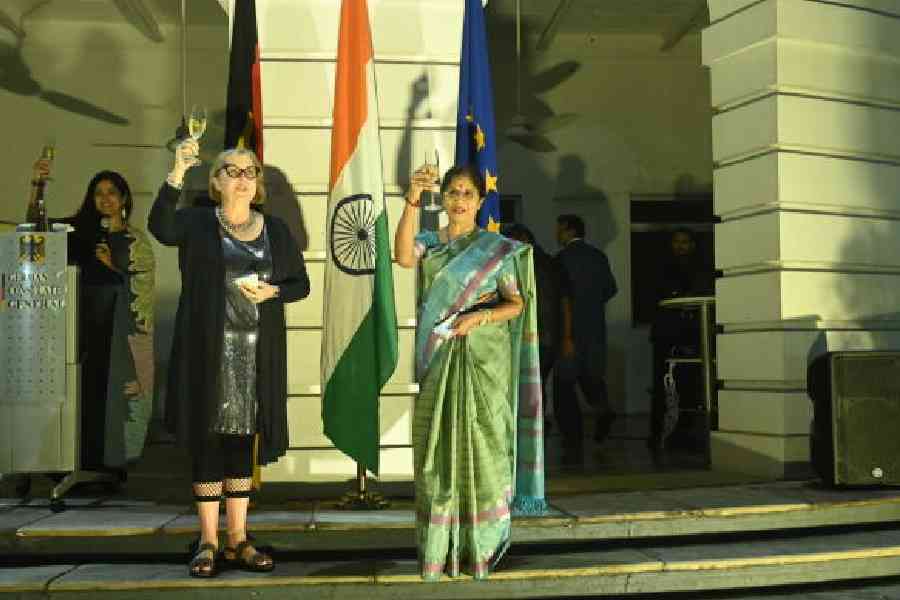A nip in the evening air and a hint of dew on the grass made the lawn of the consulate general of Germany a comfortable setting for the German Unity Day reception. Tables had been laid out for guests with the national flag’s black-red-and-gold placed as highlights on the white table covers and backrests of the seats.
The hostess, consul general of Germany Barbara Voss, started her address with a reference to the momentous occasion — the fall of the Berlin wall on November 9, 1989. “Thirty-five years ago, the belief in a better future brought down walls…. Today, the fall of the Berlin Wall is still a reminder of what unity, cooperation and willingness can do,” she said. The process of reunification was completed on October 3, 1990.
The annual commemoration was being held in end-November to allow the Calcutta winter to set in. “The pleasant weather is allowing us to hold the event outdoors,” a consulate official said.

Hostess and consul general of Germany Barbara Voss addresses the gathering
The first woman German consul general in the city, Voss stressed on women’s empowerment, inclusion and diversity being central to the consulate’s vision and work. Another issue she raised was climate change. “Extreme weather events and excessive AQI levels show us the catastrophic consequences and the necessity to act. We can still achieve our global climate goals if we all work together and do our part,” she said.
There were two installations on the lawn which stressed her point. Twirl.store, which produces eco-friendly products, had created a fabric waterpool using 100kg of upcycled fabric, from which a river originated but as it wended forward it became narrower, due to man’s overconsumption and the resultant trash being tossed in the water, harming the ecosystem. Boards on the bank carried awareness messages like it takes 2,720 litres of water to make a T-shirt. “It is estimated that a garment is worn just seven times on an average before being discarded,” Sujata Chatterjee, founder of Twirl.store, said. A fabric mosaic image of two hands holding up the globe reminded guests of their responsibility to preserve the planet.
Two huge scarecrows towered over the lawn. “We install scarecrows in fields to keep harm away and preserve our assets. The two figures also stand for a dialogue to see what changes we can bring about for a better future,” said Nobina Gupta of the Dissapearing Dialogues collective, which works in the East Calcutta Wetlands. A video projection was played to sensitise people on conservation.
Germany is the focus country at the upcoming Book Fair, and preparations are underway. “The Goethe Institut team, led by director Astrid Wege, is in the driver’s seat,” announced Voss, nodding at Wege in the front row.
Shashi Panja, the minister for industries, commerce and enterprises as also women and child development, spoke of Bengal and Germany’s ties beyond trade and commerce in a shared passion for the arts, intellectual pursuits and sports, especially football. “Germany has been a pioneer in sustainable development and advanced manufacturing. We too are committed to a future that is sustainable and inclusive,” she said.

The consul general and the deputy consul general with their spouses receive the guests
Among the guests, there was a clutch of volunteers from Germany who are serving in local NGOs. Many of them were draped in Indian clothes. “This doesn’t feel like winter back home,” grinned Selin Meryem Kavuk, who hails from Bad Säckingen, a South German town on the Switzerland border, who is now working at Helgo in Howrah along with compatriot Sophie Stimmler from Stuttgart. An Indian colleague had helped Sophie wear a sari. “I feel like a princess!” she said. Magdalena Mohn from Stralsund too wore a sari. “Our organisation, Nari O Sishu Kalyan Kendra in Howrah, makes saris. Isn’t it a lovely colour?” she beamed, with her colleague Matti Gebhardt from Leipzig standing by her in panjabi-pyjama.
There was a buffet spread from Taj Bengal, including a live counter of Bratwurst (pork sausage), and German wine.










